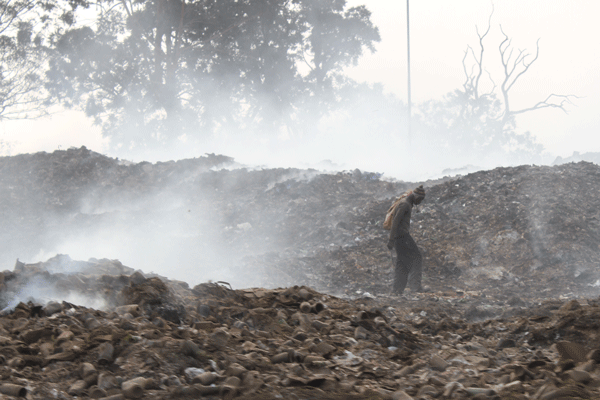
The climate change equation is proving hard to solve as a result of divergent voices echoing from both the paved streets of the developed world to the dusty paths of the developing communities.
environment By Kennedy Nyavaya

To mitigate and adapt to the effects of the climate change headache, all citizens of mother earth should agree to strike a sustainable balance in daily life activities.
Most world leaders, as proven by the signing of the Paris Climate Agreement, seem to agree that the problem is real but paradoxically disagree on ways to alleviate it.
In the midst of the mediation, however, the prospects of a green society, although attainable, appear to be delayed in what could fuel the dreadful global warming.
In Zimbabwe the chaos hindering the greening of all aspects of life is multifaceted, ranging from policies, financial constraints and an engraved way of life.
The Swedish Embassy through its annual Swedish Open Forum attempted to answer some of the questions usually raised in the debate recently.
Part of the panellists during the discussion attended by different stakeholders was Professor Ashok Chakravarti, who is also country coach for the Ease of Doing Business Programme, said there was need for a paradigm shift in crafting of laws to encourage green activity.
- Chamisa under fire over US$120K donation
- Mavhunga puts DeMbare into Chibuku quarterfinals
- Pension funds bet on Cabora Bassa oilfields
- Councils defy govt fire tender directive
Keep Reading
“If you do not have a favourable and enabling environment which consists of the policies, regulations, taxes and incentives, at the end of the day you are not going to be able to develop green technologies and green societies implementations on a larger scale,” he said.
“The bottom line is whatever you introduce has to be viable both for the country, the economy and also for the private sector. If it’s not viable enough to generate profit that is not going to be sustainable.”
The legal framework in the country has a stance of punishing those initiating actions which are not climate-friendly but Chakravarti believes this approach will delay the process of greening the society.
“By regulation you can force people to adopt such technologies but the better way of doing it would be to incentivise the use of such technologies and we don’t have that approach unfortunately in Zimbabwe,” he said.
Penalties enforced by the local governing body, the Environmental Management Agency are apparently not punitive enough as offenders continue to flout statutes.
A recent example is the Harare City Council’s Pomona dumpsite fire issue which, although the City Fathers were fined, it sparked uproar among environmentalists who argued that the fine amounting to $5 000 was not enough to stop the institution from such sloppiness.
Not only did the fire cause a great damage to the environment and proved a health hazard, it also affected recyclers who watched as thousands of dollars in waste material went up in smoke.
Zimbabwe Sunshine Group director Ronny Mbaisa said there is need to solemnise informal efforts by local citizens.
“The green jobs that we are talking about are already there but most probably it might not be formalised, which is something we want to lobby the government so that they come up with a system to formalise this industry,” said Mbaisa, adding that the youth were already geared up for such jobs.
“We have got the young people who are ready to take over the green job industry that we are talking of so I do not have any doubt and quote me in five years’ time we will be saying something.”
It is still unclear how the government through the ministry of Environment, Water and Climate intends to fast-track green projects which are currently moving at a snail’s pace.
However, academics posit that apart from financing, the first port of call is ensuring progress even in the future is educating the nation on climate change and its effects on the future.











